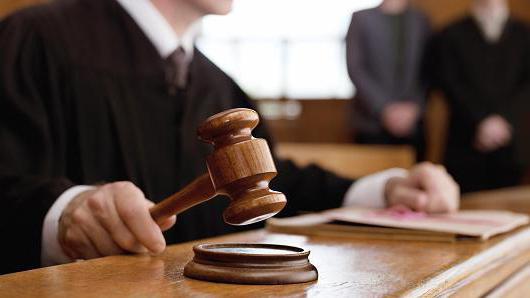Administrative detention
Administrative detention is always unpleasant. Is it worth it to be afraid? In principle, no? Should I go to the office every time when a police officer insists on it? No. The matter is that administrative detention can be made only for:
- identification of the person who committed the offense;
- suppression of an offense (administrative);
- drawing up a protocol, if there is no way to formalize it on the spot.
Police officers can draw up protocolsOnly for those administrative violations that are prescribed in the Code of Administrative Offenses. A police officer should explain to the offender (or simply the detained person) the reason for wanting to take him to the office.
Delivery to the police station must be carried out in a short time. All actions must be logged.
Administrative detention is a short-termrestriction of freedom, possible in certain cases. At the request of the detainee, his relatives should be immediately notified of what happened. It is also possible to notify a lawyer. Citizens have the right to refuse to testify until their defense attorney arrives. The detainee is read out his rights. This is also recorded in the protocol.
The protocol on administrative detention should contain information about the place, reasons, and the person who made the arrest. The time of detention is the time of delivery to the department.
Administrative detention, the term of which isordinary circumstances can not exceed three hours, in cases specified in the law, may last longer. Such cases include violation of customs regulations, state borders and so on. Also, the period can be increased if there is no possibility to establish an identity.
In some cases, administrative detentioncan last up to fifteen days. It's about petty hooliganism and so on. An interesting fact is that the term of detention of a person in alcoholic intoxication begins at the moment when the person is sober. Of course, this period is very difficult to establish. Similar regulations police officers often speculate.
With this detention, a personal search is possible. The rules should respect the following:
- the presence of two witnesses;
- the room in which the inspection is carried out must be clean and comply with the standards of sanitation and hygiene;
- the examination should be carried out only by persons of the same sex as the detainee;
- before the inspection, authorized persons must volunteer to present the hidden objects.
Inspection without witnesses is possible only in those cases when there is reason to believe that the detainee has arms, explosives and so on.
The record of the inspection carried out must be recorded in the record.
Documents, as well as things that are toolscrimes are seized by personal inspection. Everything else should remain with the detainee. All items seized and found in person are recorded. They should be described in detail. The protocol is signed by the person who drafted it, understood it, and also to those from whom these things and documents were seized. The last should be given a copy of the protocol. Administrative detention, as well as inspection of things, personal search, seizure of documents and things can always be appealed. The complaint is submitted to a higher authority. It is also possible to appeal through the court.
From the day the copy of the decision is received, the complaintserved for ten days. Recovery is possible, but only under certain circumstances. Administrative detention is easy to appeal, but it will be necessary to prove that it was made in violation of certain norms.
</ p>>





